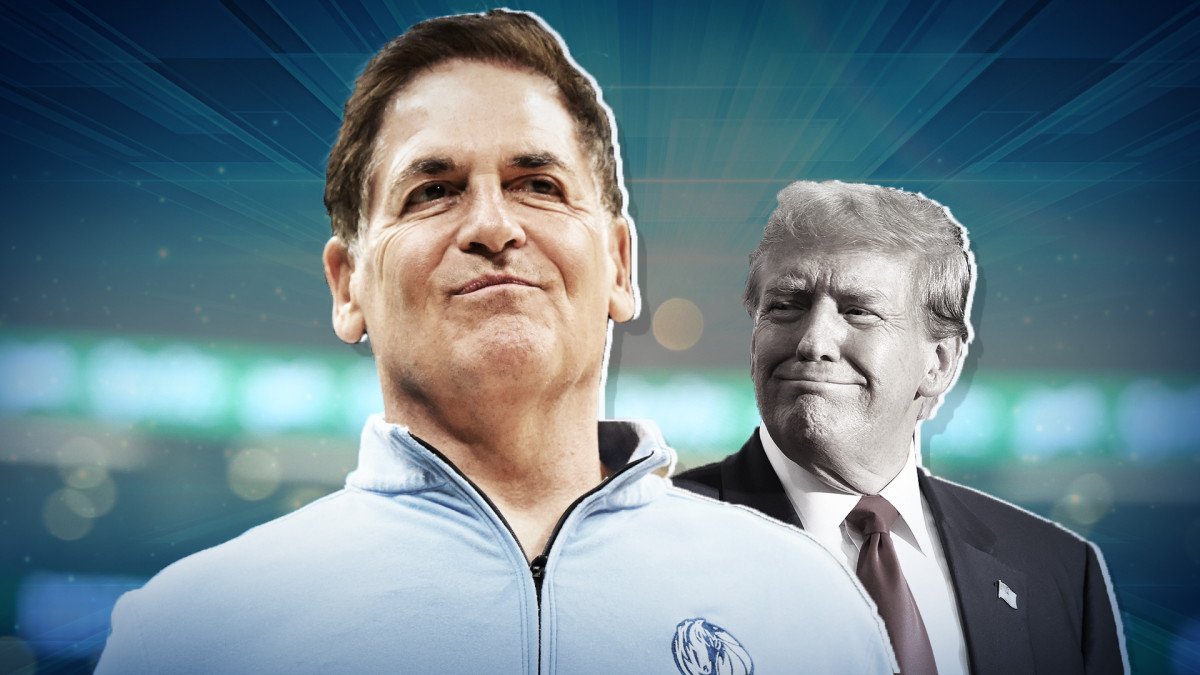The mood in the C-suite is growing sour as more CEOs get more vocal about the need for tariff relief. “The bloom is very much off the rose” when it comes to the business community’s embrace of President Donald Trump’s second term.
With his imposition of steep tariffs on virtually every country around the globe threatening to tip the United States into a recession, CEOs are pleading with the president to start making those deals he likes to boast about.
Investment and Growth Hit Hard by Uncertainty
Goldman Sachs (GS) CEO David Solomon summed up the current sentiment among corporate leaders in a recent Bloomberg interview: “The policy actions to date have raised the level of uncertainty to a degree I do not think is healthy for investment and growth.”
Solomon added, “As I am talking to CEOs, talking to our clients, they are holding back on investment, and they are certainly tightening their belts.”
That’s a stark contrast from the mood when Trump took office in January. At that time, business leaders at the World Economic Forum in Davos were full of hope that the new administration would bring lower taxes, fewer regulations, and a better business environment.
Tariff Shock Turns Optimism Into Concern
But Trump’s so-called “Liberation Day” on April 2 — when he announced the steepest tariffs the country has seen in more than a century — left executives reeling.
According to CBS News, the CEOs of Walmart (WMT) and Target (TGT) privately warned Trump in the Oval Office last month that his tariff policies could disrupt supply chains and leave store shelves empty.
Public Pleas for Policy Reversal
Virgin Group CEO Richard Branson took his plea public. On April 7, in a post on X, he urged the Trump administration to “own up to a colossal mistake and change course” before the damage spreads further. Branson warned:
“As the dollar is weakening, US consumer prices will rise. And countless small and medium-size enterprises will go, and already are going, bankrupt as a result.”
He wasn’t alone. CEOs from major U.S. companies including American Airlines (AAL), PepsiCo (PEP), and Procter & Gamble (PG) have all raised concerns about the damaging effects of uncertainty caused by tariffs, citing difficulty in formulating business plans and declining consumer confidence.
Chamber of Commerce Joins the Chorus
Chamber of Commerce CEO Suzanne Clark expressed her concern in a letter addressed to Commerce Secretary Howard Lutnick, Treasury Secretary Scott Bessent, and Trade Representative Jamieson Greer.
She warned: “We are deeply concerned that even if it only takes weeks or months to reach agreements, many small businesses will suffer irreparable harm.”
Clark may have hoped her warning would elicit a response similar to that given to auto industry groups representing General Motors (GM), Volkswagen (VWAGY), and Toyota (TM).
Those groups had pleaded in April with Trump to reconsider a 25% tariff on car parts set to begin May 3. Trump responded by temporarily relieving the auto industry from the “permanent” tariffs on April 29.
Major Companies Brace for Impact
Still, General Motors CEO Mary Barra expressed concern. In a letter to shareholders released last week, she stated that tariffs could cost the company up to $5 billion this year.
While she praised some of the administration’s policies, she clearly highlighted the massive challenges GM is now facing due to the tariff situation.
UPS (UPS) CEO Carol Tomé also spoke out during a recent investor call, saying Trump’s trade policies were particularly harmful to small and midsize businesses dependent on goods from China.
“Wow, how are we going to handle this cost increase that’s coming our way?” she said, quoting what smaller companies are now telling her. Shipments from China to the U.S. account for 11% of UPS’s international revenue, making the company highly sensitive to trade disruptions.
Mark Cuban Warns of Tariff Fallout
Billionaire investor and entrepreneur Mark Cuban has been a vocal critic of President Trump’s tariff policies. He cautioned that the proposed tariffs would burden even the smallest businesses with expensive and time-consuming compliance requirements. “It’s a lot of work.
It’s a lot of bureaucracy. It almost always required hiring a broker to deal with all of it.
And of course there is the ongoing record keeping that each business is responsible for,” Cuban noted. He emphasized that across-the-board tariffs are inflationary and could invite economic retaliation from other countries.
Cuban also criticized Trump’s threat to impose a 200% tariff on John Deere if the company moves production to Mexico, calling it “insane” and warning it could “destroy a legendary American company and increase costs to American buyers.”

CEO Confidence Falls to Lowest in Years
A recent survey by Chief Executive magazine, which polled 329 U.S. business leaders, revealed that 67% of CEOs do not agree with the president’s tariff agenda. Even more — 76% — believe the import taxes will directly hurt their companies.
CEO confidence, the report noted, has dropped to its lowest point since November 2012.
Nintendo Switch™ Neon Blue and Red The Gaming Console for Home and Travel




